HOW St. Lucia copes with the pressure likely to come from the European Union (EU) over its tax regime is anybody’s guess. But a fight is brewing following the latter’s blacklisting of the island as a tax haven.
By Prime Minister Allen Chastanet’s own admission, next year will be a difficult one for St. Lucia in its negotiations with the EU as it pertains to its tax regime, in particular the Headquarters Act that was recently passed in Parliament.

He believes that St. Lucia is up to the fight, in that government intends to make a substantial amount of adjustment to its taxation system next year to ensure that St. Lucia is compliant both from a local and international perspective.
Having a tax system that will propel the government forward in its drive to grow the economy is what Chastanet is aiming for, but facing him are issues that could wreck his plans.
The most urgent is the EU and OECD (Organization for Economic Co-operation and Development) assertion that St. Lucia has harmful preferential tax regimes, does not apply the BEPS (Base Erosion and Profit Shifting) minimum standards and did not clearly commit to addressing these issues by December 31, 2018.
If this is not corrected, St. Lucia’s foreign assistance cake, the largest slice of which to date comes from the EU, could significantly shrink as development aid to the country could very well be reduced to a trickle.
The passing of the Headquarters Act, which Prime Minister Chastanet says seems to be working on account of about eight companies primed to set up shop here, can be viewed by the same EU as strengthening its case of St. Lucia being a tax haven.
Also forcing the Prime Minister’s hand to make adjustments to the country’s tax regime is a proposal by the United States government to lower its corporate income tax from 35 percent to 20 percent that significantly allows American companies to remit their profits back home.
“We think this is going to create a huge economic boom in the U.S., which ought to augur well for us from a tourism and investment perspective. But it also means we all have to review our tax policies in order to make sure that we remain competitive in that regard,” Chastanet said.
He continued, “Our personal income tax structure, our corporate income tax structure need to become very competitive with the new reality. We must make ourselves much more tax competitive,” Chastanet said.
To help make things easier on the tax front, the Prime Minister said his government will be pursuing strategies to get the country off the EU/OECD blacklist and will be working with the EU in that regard.
But the government in waiting, namely the opposition St. Lucia Labour Party (SLP), is not letting the government off so easily for its refusal to commit by December next year the issues highlighted by the EU.
Philip J. Pierre, the SLP political leader, said the situation is very serious, noting that St. Lucia was never blacklisted before as his government had complied “with everything the EU or OECD told us to do”.
“All St. Lucia had to do was to commit to changes by December 2018. Because of negligence by the government, they did not give the EU the commitment. All they (government) had to do was to give the EU a commitment that they would deal with the BEPS. They (government) failed in doing that,” Pierre said.
According to Pierre, the important questions are what did St. Lucia do, what legislation was passed, what did the Prime Minister say that caused St. Lucia to be blacklisted and why did he not commit to make the changes as asked by the EU by December 2018.
“If St. Lucia does not comply, the EU can stop giving aid,” Pierre said, despite no word yet from the EU that it is so inclined to do so.
Pierre on Thursday called on Chastanet to take responsibility for the blacklisting and reiterated that St. Lucia met this fate due entirely to negligence on the part of the government.





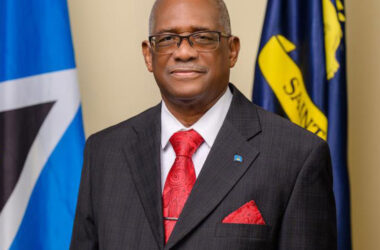








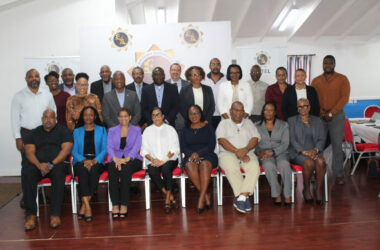
Prime Minister Chastanet and his UWP allies are much better at dissecting problems than at formulating solutions. Does he have any empirical evidence to suggest that relegating the country to a tax haven will spur economic growth? He is acting like a thoughtlessly indifferent leader who is guided by impulses and instincts. And in so doing, we the St. Lucian people are being contaminated and undermined by his narrative of indifference.
……bovine waste, packed as tightly as brown sugar;…Jacques!…..do you have the facts?…..what are those “preferential tax regimes”?…..